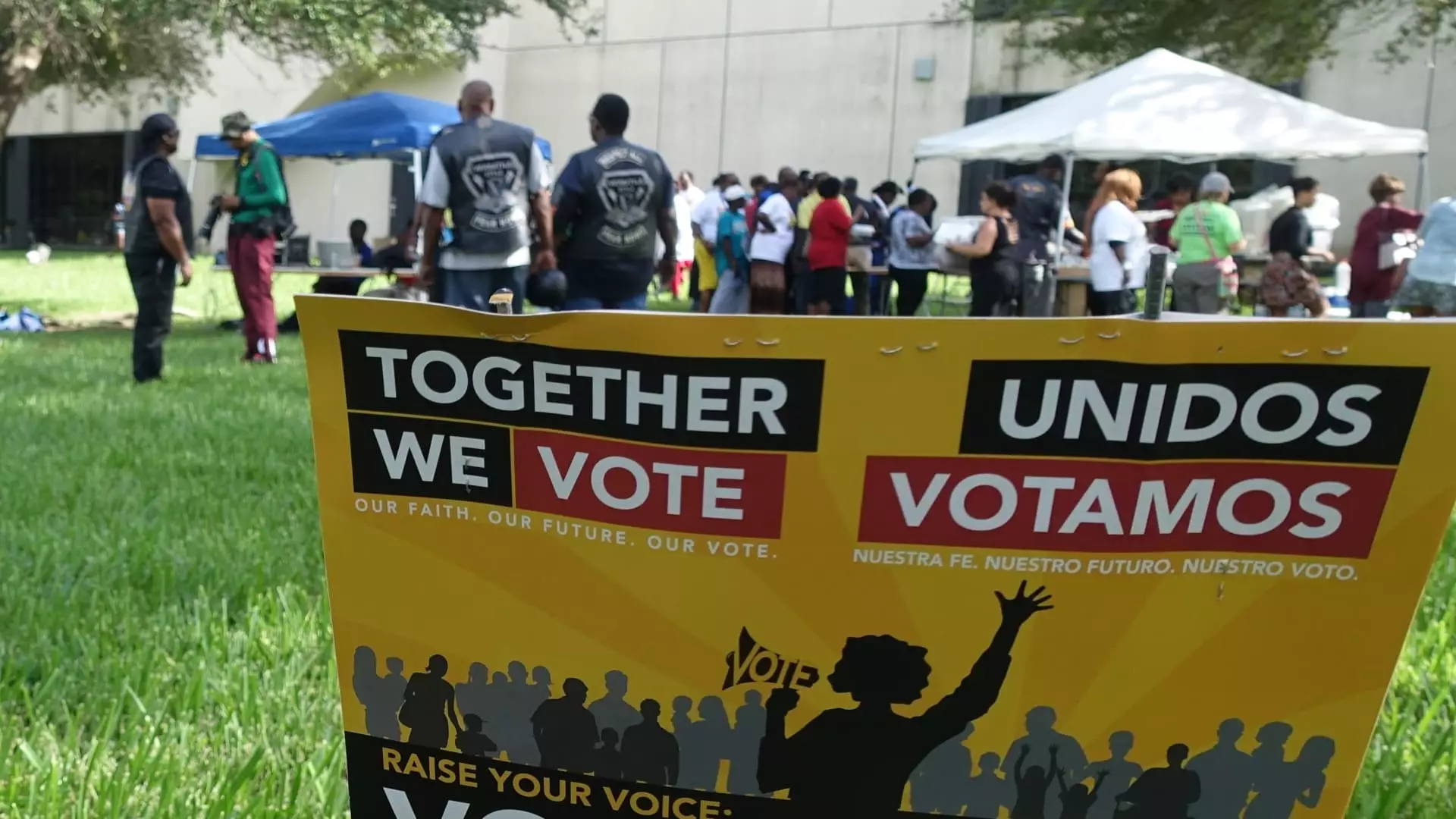The Harris campaign is diving into an unprecedented initiative aimed at engaging Latino voters, capitalizing on the culturally significant National Hispanic Heritage Month as a backdrop for its outreach efforts. This momentous endeavor reflects a nuanced understanding of the voting landscape, particularly in key battleground states, and highlights the campaign’s commitment to making substantial investments in communication strategies that resonate with Latino communities.
A significant aspect of the Harris campaign’s outreach strategy is its focused approach on battleground states that have considerable Latino populations. States like Arizona, Nevada, and Pennsylvania are vital for the upcoming elections, where early voting is already on the horizon. Understanding this demographic’s influence can prove pivotal in shaping electoral outcomes.
In line with this, Vice President Kamala Harris is set to address the Congressional Hispanic Caucus Institute’s annual conference, which demonstrates her direct engagement with Latino issues at a national level. Additionally, Minnesota Governor Tim Walz is slated to travel to swing states, further amplifying the outreach. This coordinated effort underscores an acknowledgment of the Latino electorate’s significance, further persuading undecided voters who may feel disenchanted by the political climate.
Innovative Engagement Strategies: Sports and Culture
The campaign is utilizing innovative strategies to connect with Latino voters, including novel combinations of sports events and cultural celebrations. The Harris team plans to leverage the thrilling atmosphere of boxing matches and baseball games, understanding that these events provide more than just entertainment—they also present a unique opportunity to engage with community members on a personal level.
For instance, campaign surrogates will attend significant events, such as the much-anticipated super middleweight fight between Canelo Alvarez and Edgar Berlanga, which exemplifies how the campaign is blending cultural phenomena with electoral engagement. Mobile billboards, creatively designed as “Luchadora” ads, will circulate around the venues, directly appealing to Latino identities while conveying Harris’s accomplishments in areas pertinent to their concerns, like immigration and border security.
Moreover, the ‘Latinos con Harris-Walz’ initiative organizes community-specific events, such as tailgate parties aligned with the Hispanic Heritage celebrations, further cementing their commitment to connecting with Latino constituents during a celebratory timeframe.
One of the most critical elements of the outreach effort is a historic $3 million investment in Spanish-language radio advertising. The ads, strategically deployed from September 15 to October 15, represent one of the most significant commitments to Hispanic media the campaign has ever made. This investment reflects an acute awareness that effective communication within these communities must be culturally relevant and linguistically accessible.
Crafting tailored messages for sports-themed shows and partnering with trusted radio personalities showcase a strategic pivot towards methods that resonate deeply within Latino households. Moreover, the campaign aims to counter rampant misinformation by utilizing platforms like WhatsApp to foster direct communication and disseminate accurate information among voters who may fall prey to disinformation.
Recognizing that many Latino voters rely on personal networks for information, the Harris campaign has initiated a “trusted messengers” program aimed at amplifying voices within the community. By fostering connections through individuals such as local leaders and influencers, the campaign seeks to create an environment of trust which is pivotal for persuading undecided voters.
Polling data indicates a significant divide in support for Harris versus Trump among Latino voters, highlighting a trend that shows higher favorability for Harris among Spanish-speaking and bilingual households. This data serves as a crucial indicator of the campaign’s effectiveness in engaging with Latino communities, reinforcing the notion that cultural and linguistic factors are paramount for electoral success.
Conclusion: The Importance of Latino Voter Engagement
The Harris campaign’s holistic approach to engaging Latino voters during National Hispanic Heritage Month illustrates the significance that this demographic holds in the upcoming elections. Through a blend of community engagement, strategic advertising, and cultural relevance, Harris aims to galvanize support that could prove decisive in pivotal races. As initiatives unfold, the focus remains on fostering genuine connections and counteracting misinformation, thus paving the way for an empowered and informed Latino electorate, making it clearer than ever that their voices will significantly shape the political landscape in the near future.

Leave a Reply